Sailing through the storms: Buzz’s story
Mike, known by his Scouts as Buzz, is a skills instructor and a former Beaver volunteer who’s been on an extraordinary journey.
Not only did Mike once find himself in the lead at the World Sailing Championships, he’s lived in Australia, Germany and Portugal. He’s also carved out a successful career as a technical illustrator and found out he was adopted at the age of nine.
If that’s not amazing enough, he did all this with dyslexia.
He shares his inspirational story with us.
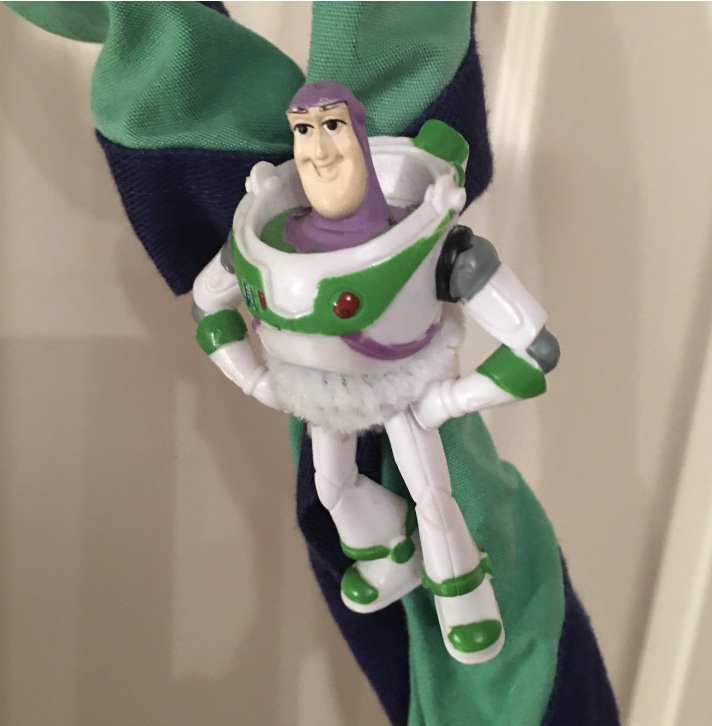
My name’s Mike, but my Scout name is Buzz. My Beavers gave me this name. I even have a Buzz Lightyear toy on my neckerchief to remind anyone who forgets.
Sometimes, I’ll run into someone in the supermarket, perhaps a former Beaver who’s now grown as tall as me, who says: ‘Hey Buzz!’
It’s a great feeling knowing they still remember me.
One of the family
As a child, I was placed for adoption and my birth name was annulled. I was adopted by a family who wanted more children, but thought they couldn’t have any more. However, two years after they adopted me, an unexpected baby brother came along. If he’d arrived earlier, my life would be very different.
I grew up with one older brother, and one younger. We did a lot of sports together, and no one would’ve known I’d been adopted. We really enjoyed each other’s company.
It wasn’t until I was nine years old that my parents told me I was adopted.
We were on a family day trip and outside the civic hall when my mum innocently said, ‘Look at that building, Michael. We picked you up from there.’
We parked at the side of the road so my mum could explain everything. I remember the moment so clearly. It probably wasn’t the best moment to find out, but it just came out.
I recall looking at my brothers and questioning my belonging. Thankfully, those thoughts faded quickly, as the bond between us was so strong. I’ve always felt and been treated like a blood brother and son, which made me feel special.
Setbacks at school
At school, my dyslexia started to show. I struggled with my reading, writing, comprehension, and conversation. Reading out loud was torture, especially hearing all the sniggering and comments.
Academic work was never going to be one of my strong points, so my parents always encouraged me to get involved in things I was naturally good at, such as sports and practical, outdoor activities.
I joined Cubs when I was nine, after we’d lived abroad for four years in Riyadh, Saudi Arabia. When we came back, the local District Commissioner asked my dad to help set up a Sea Scout Group in Falmouth. Of course, I went along too.
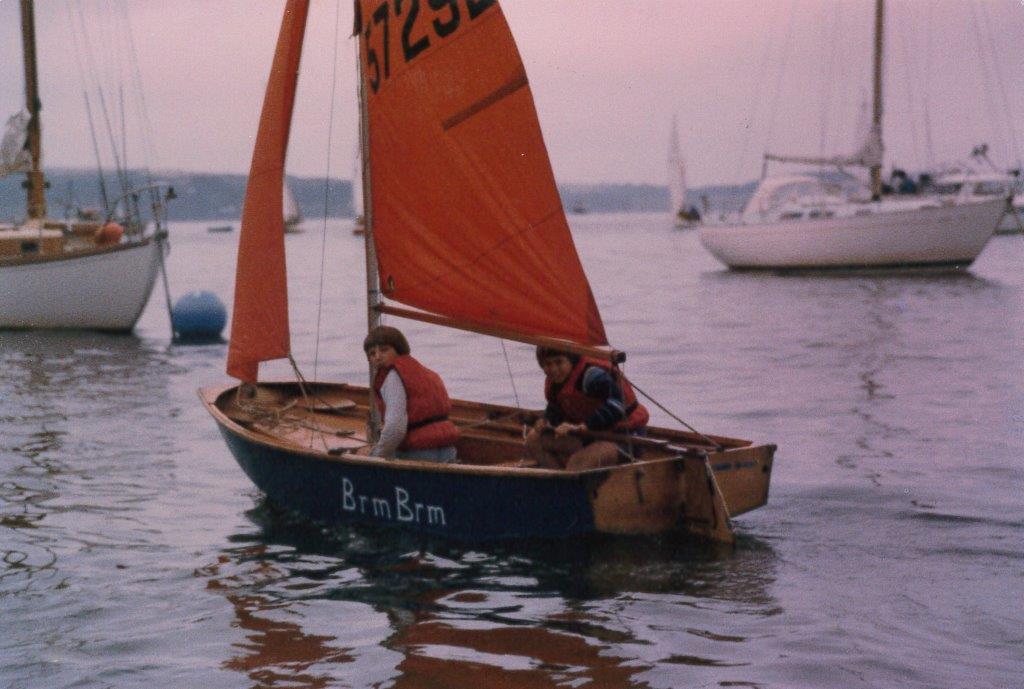
Why Scouts worked
Scouts was great for me, because it was about ‘doing,’ rather than writing or reading. Suddenly, I was on level playing field. I could thrive and show my real potential. The knowledge, self-belief, and sense of belonging Scouts gave me a real sense of accomplishment, as I struggled with my school work.
It was very diverse group, with no one looking down on others or putting them aside. I made lots of friends, and still see many of them today.
We did so many activities and I learned to sail quickly. We also did physical and practical things that I really enjoyed, like rowing and paddling.
I learned lots of nautical skills. Technical skills came quite naturally to me, and I was able to show other Scouts those skills too. All of this helped to restore my confidence.
Plain sailing
In the winter, we did ‘land activities,’ just like other Scouts. But in the summer, it was all about going on the water. For our summer camp, we used to row and sail the boats across the bay to the Helford Passage.
From Cubs and Scouts, I went onto Venture Scouts (now called Explorer Scouts), and took part in even more adventurous things. We did the Ten Tors Challenge and the Duke of Edinburgh’s Award. Thanks to these, I did a sailing expedition, boat restoration, coastguard training and my residential at the national sailing centre doing race training.
My parents always encouraged me. If one thing didn’t work out for me, they’d suggest I try something else. Mum even sold her treasured sports car so we’d have a car to tow the boat to all the regattas.
My father sadly passed away. He hugely influenced of my love of the water and adventure. My mum, Pat, is still my number one cheerleader. She’s always liked to give back. She started the Mencap Centre in Falmouth, opened by Lord Sebastian Coe, and she won the National Carer of the Year award in 1988.
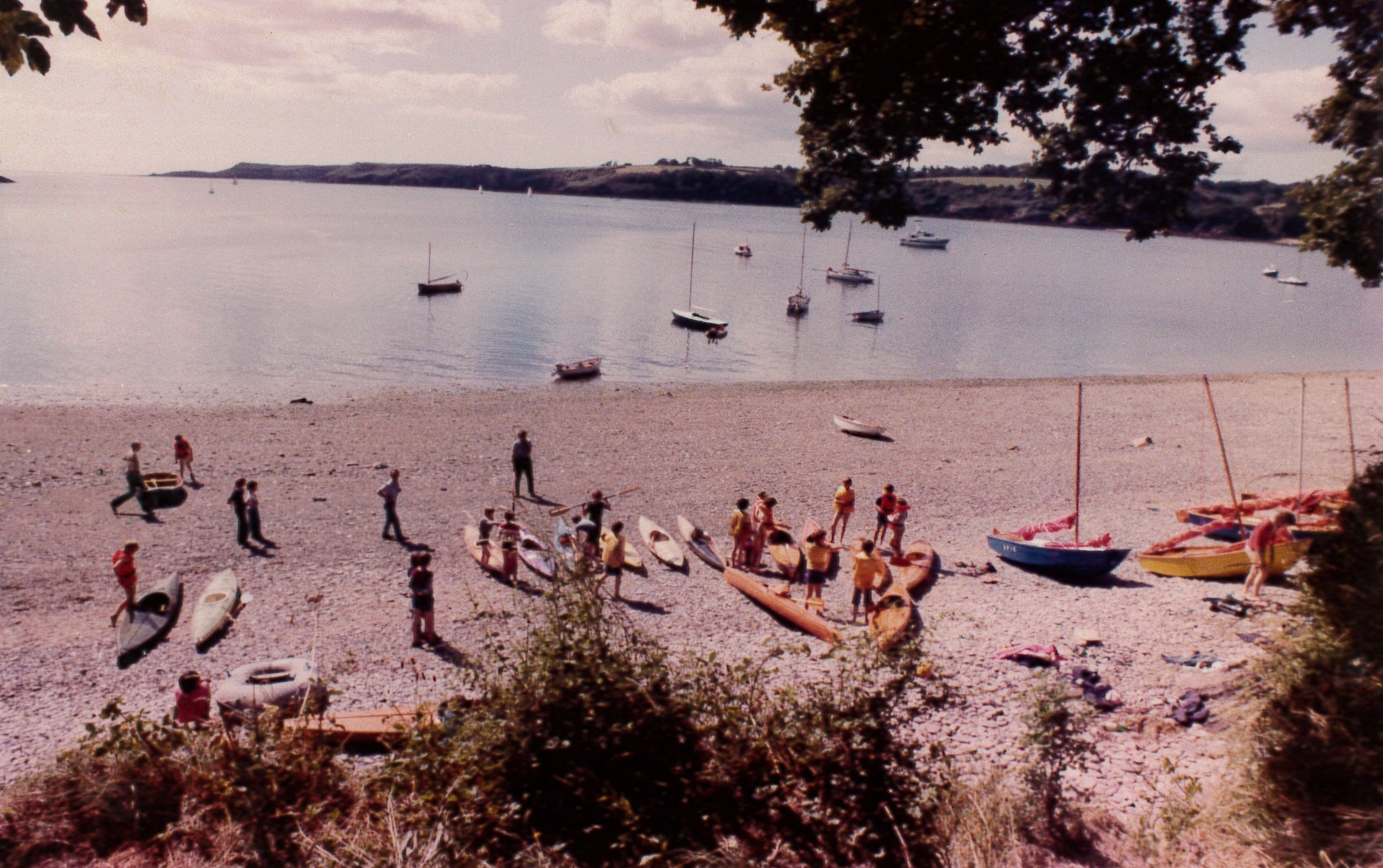
Spreading my wings
All of this encouraged me to spread my wings, so I went to Australia when I was 19 on a working holiday visa. Based in Sydney, I travelled the whole of the east coast, including the Great Barrier Reef. It was extraordinary to see this part of the world.
During my travels, I met an Australian sailor. We teamed up and qualified to be part of the Australian sailing team in the 505 Class.
We took part in the National Championships of Germany, Denmark and Sweden as part of our team training before the World Championships in Felixstowe, where we finished in the top third. We were in the lead at one point, and it was slightly terrifying being at the front of the whole world with the wind and spray in our faces. It was an incredible feeling.
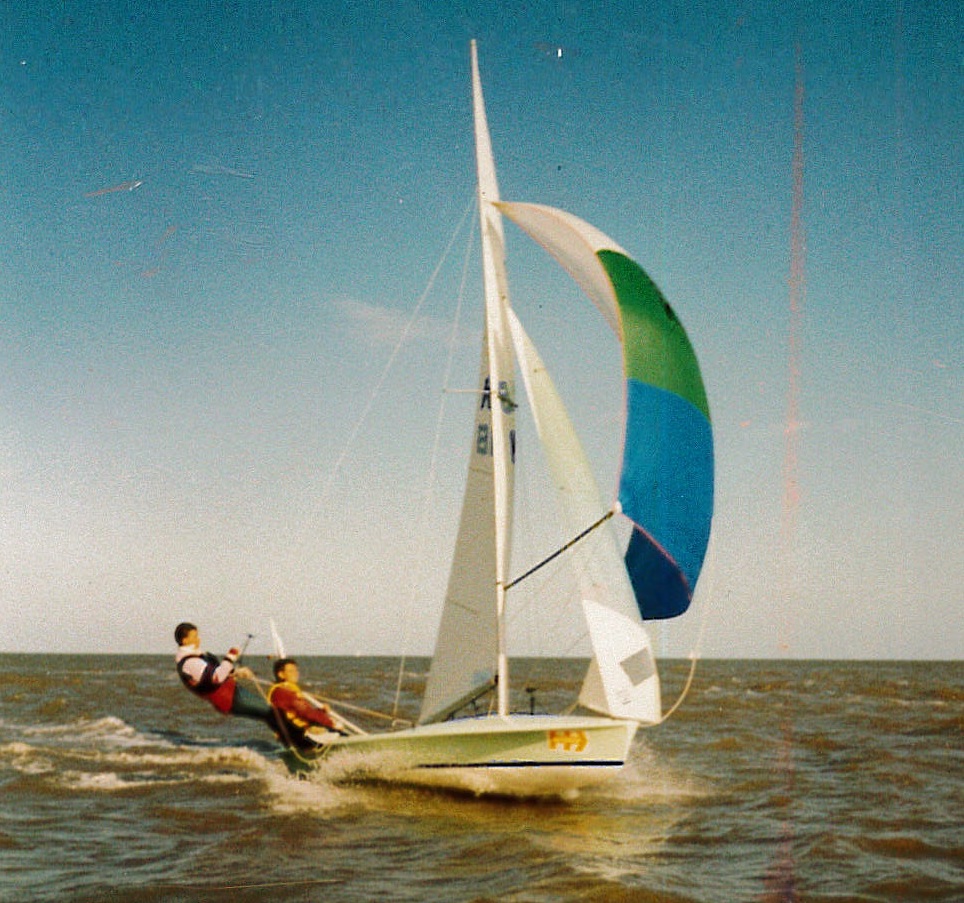
Professional life and marriage
Professionally, I became a technical illustrator. I worked with images without words, and it fitted around my dyslexia. After college, I travelled, worked, and lived in various countries for nearly 18 years, before coming back to the UK with a young family.
I met my wife when I worked in Portugal. However, for us to get married there, I needed my birth certificates. I didn’t know if one existed for my adoption, so I asked my mother. Without hesitation, she requested one, knowing the details would reveal my annulled birth name, my birth parents’ names, and their address.
I was naturally intrigued by this discovery, but I’ve never thought of pursing it further. Although my family gave me their full blessing and offered to help me find them, I wouldn’t change anything.
Learning to cope
You might think I was riding high at this point, but I was still suffering setbacks because of my dyslexia. It hit my confidence.
I wanted to teach sailing at the club and Scouts, and to people with learning disabilities. I had so much to offer, but I was petrified. My anxiety made it difficult for me to put things into words, express myself and engage with people properly. It felt like there were invisible weights holding me back.
This really struck home while I was doing a sailing instructors course. I’d been able to hold my own against the world's top sailors at World Championships, but now, I couldn't stand in front of people to explain what I knew best.
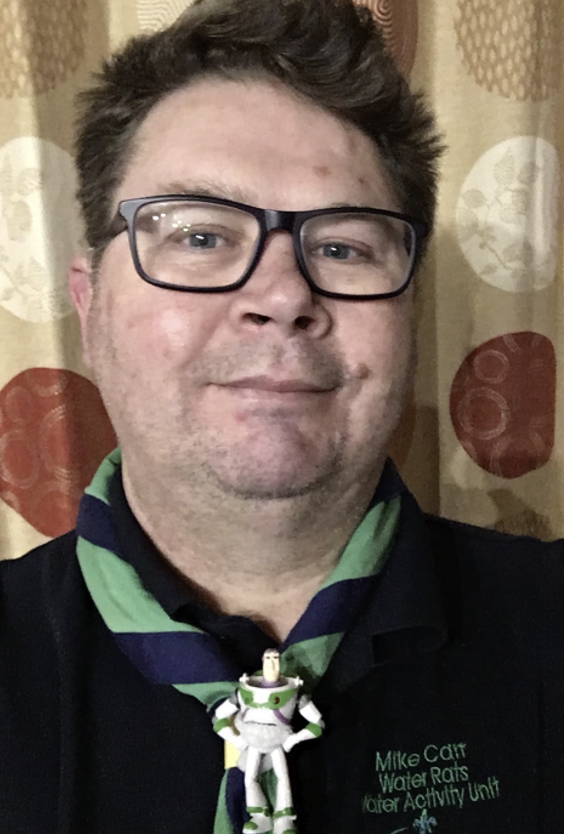
How becoming a volunteer in Scouts made all the difference
I needed a way to confront my fears and find coping mechanisms, so I became an occasional helper at Beavers. Gradually, things became more manageable and not so terrifying, and I eventually became a uniformed leader.
I’ve been a volunteer now for ten years. I’ve also become a recognised RYA Sailing Instructor. This set me off on my path in Scouts as a Group and County skills instructor, and I’ve gained lots of National Governing Body qualifications and Scout permits.
Giving back
I’ve delivered taster and development sessions and courses, and perhaps most rewardingly, have helped with disability water sports. It’s humbling and inspiring, observing and interacting with the young people as they enjoy their time on the water, regardless of their own challenges.
In my local group, I helped form the WaterRats Water Activity Unit, creating opportunities for our young people to get engaged, challenge themselves and learn new skills.
Of course, there are still challenging moments for me, but the positive outcomes outweigh the negatives, making it all worthwhile.
Last year, we were recognised for our work in promoting and developing water sports with The Chief Scout's Commendation for Good Service Award.
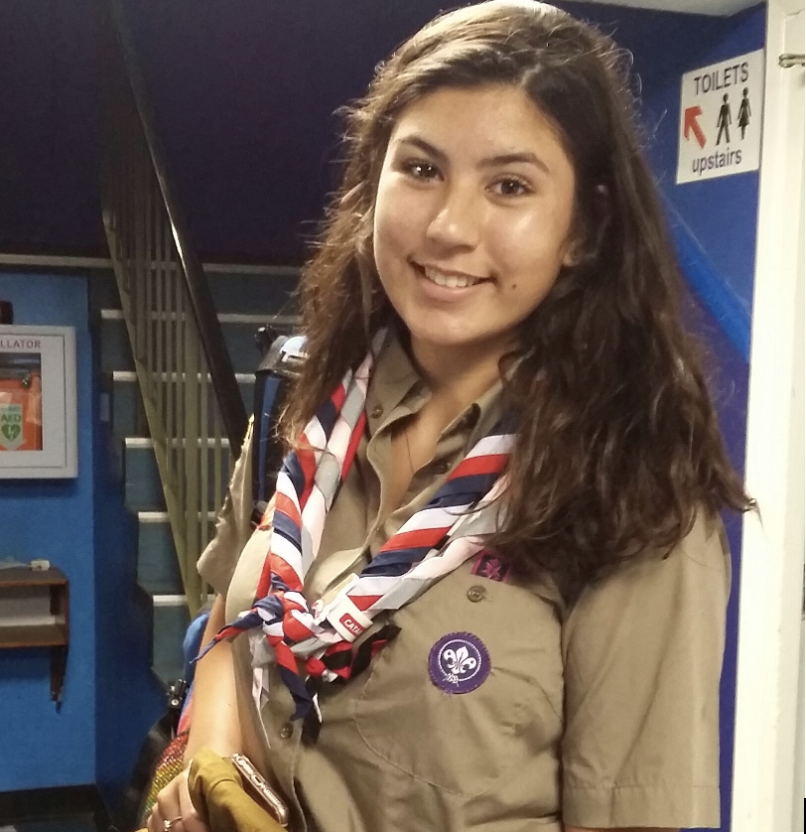
A proud moment
Knowing the positive impact Scouts had on me, I encouraged my daughter to start as a Beaver Scout. She was invested and supported by a brilliant leader, Jean Marshall.
Watching her interact and get involved made me smile so much, and it brought back so many fond memories. I was so proud to see her head off to the 2019 World Scout Jamboree as she continues on her own life journey.
It’s especially amazing that she doesn’t let her Functional Neurological Disorder (FND) condition hold her back, even though she experiences seizures, blurred vision, brain fog and partial paralysis. I’m in awe of her positive mindset and outlook on life.
For what I’ve personally overcome and gained, I can't thank Scouts enough. It really has been about ‘skills for life.'